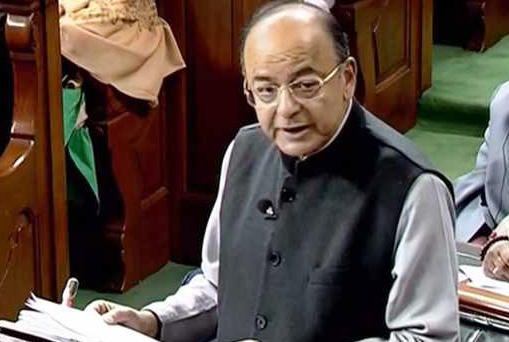Reiterating Government’s commitment to the welfare of farmers and doubling farmers’ income by 2022, the Finance Minister Arun Jaitley announced a slew of new schemes and measures in the union budget 2018-19 presented in Parliament on Thursday.
The most noteworthy announcement related to government decision to keep MSP for all unannounced kharif crops at least one and half times of their production cost after declaring the same for the majority of rabi cops.
Jaitley said the volume of institutional credit for agriculture sector from year-to-year increased from Rs.8.5 lakh crore in 2014-15 to Rs.10 lakh crore in 2017-18 and he proposed to raise this to Rs.11 lakh crore for the year 2018-19. Indian Cooperative had predicted this in earlier posts.
Minister announced to develop and upgrade existing 22,000 rural haats into Gramin Agricultural Markets (GrAMs) to take care of the interests of more than 86% small and marginal farmers. These GrAMs, electronically linked to e-NAM and exempted from regulations of APMCs, will provide farmers facility to make direct sale to consumers and bulk purchasers. Moreover, an Agri-Market Infrastructure Fund with a corpus of Rs.2000 crore will be setup for developing and upgrading agricultural marketing infrastructure in the 22000 Grameen Agricultural Markets (GrAMs) and 585APMCs. He said, so far 470 APMCs have been connected to e-NAM network and rest will be connected by March, 2018.
After the establishment of Dairy Infrastructure Fund, Jaitley announced setting up a Fisheries and Aqua culture Infrastructure Development Fund (FAIDF) for fisheries sector and an Animal Husbandry Infrastructure Development Fund (AHIDF) for financing infrastructure requirement of animal husbandry sector with a total corpus of Rs.10,000 crore for the two new funds.
On the lines of “Operation Flood” a new Scheme “Operation Greens” was announced with an outlay of Rs 500 Crore to address the challenge of price volatility of perishable commodities like tomato, onion and potato with the satisfaction of both the farmers and consumers.
Jaitley announced Rs 200 crore for organized cultivation of highly specialized medicinal and aromatic plants and said that the organic farming by Farmer Producer Organizations (FPOs) and Village Producers? Organizations (VPOs) in large clusters, preferably of 1000 hectares each will be encouraged.
Though the govt did not accept IT exemption for co-operatives, Minister introduced 80P for producer companies having a turnover not exceeding Rs 100 crore. Several multistate co-ops have already opened their subsidiaries under this company act which has soul of cooperative principle-one head one vote. This initiative has been welcomed by co-op fraternity.
Other highlights include a re-structured National Bamboo Mission with an outlay of Rs.1290 crore to promote bamboo sector, an allocation of Rs 2600 crore for 96 deprived irrigation districts, Centre’s resolve to work with the state governments to facilitate farmers for installing solar water pumps to irrigate their fields and a proposal to extend the facility of Kisan Credit Cards to fisheries and animal husbandry farmers to help them meet their working capital needs.
Jaitley said India’s agri-exports potential is as high as US $100 billion against current exports of US $30 billion and to realize this potential, export of agri-commodities will be liberalized. He also proposed to set up state-of-the-art testing facilities in all the forty two Mega Food Parks.
He also announced a special Scheme to support the efforts of the governments of Haryana, Punjab, Uttar Pradesh and the NCT of Delhi to address air pollution in the Delhi-NCR region by subsidizing machinery required for in-situ management of crop residue.
